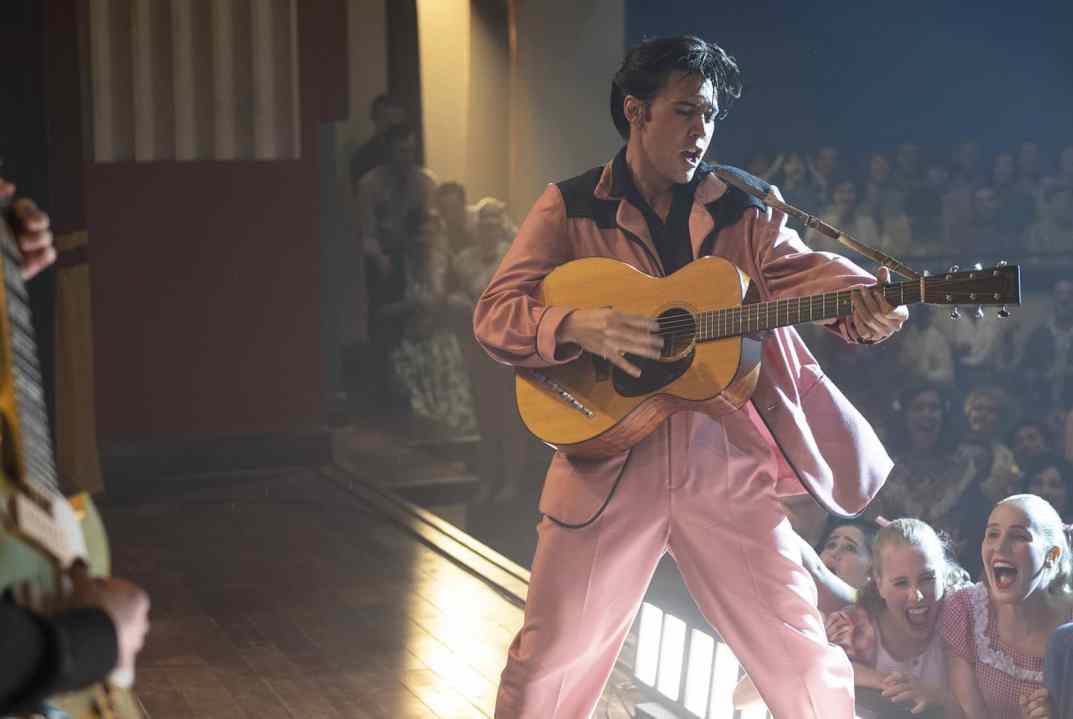Elvis is Baz Luhrmann’s biopic of Elvis Presley and it’s cradle to grave but told at such a gallop you’ll be willing it to stay put even if it’s just for two minutes. You may even be begging: Baz, come on, just hold still. But no, we’re off again. I’ve had fever dreams that have been less delirious. But on the plus side, even if it’s never deep or enlightening, it has a fizzing energy, and because it doesn’t dwell on anything, we don’t dwell on fat, sad Elvis at the end. Which is a relief.
Because it doesn’t dwell on anything, we don’t dwell on fat, sad Elvis at the end. Which is a relief
The film opens as it means to go on. That is, flashily. Even the Warner Brothers logo (WB) is sparklingly rhinestoned. The framing device is Elvis’s manager Colonel Tom Parker, played by Tom Hanks with a horrific combover, a ton of padding, and those big trousers Robert Maxwell used to wear, and Ian Paisley too. When we first meet him Elvis is already dead and Parker is old, sick, hooked up to a morphine drip, wandering the slot machines in an empty Las Vegas casino. He is not the villain of the story as popularly supposed, he says. ‘I didn’t kill Elvis. I made him,’ he says. He wants to be exonerated. There’s the suggestion of a fresh narrative but as that never comes along – Parker, the film shows, exploited Elvis mercilessly and fraudulently – you do wonder what the point is.
We spool back to the beginning and a split-screen montage that shows us Parker starting out as a carnival-barker showman in Holland while Elvis is growing up dirt-poor in a black community.









Comments
Join the debate for just £1 a month
Be part of the conversation with other Spectator readers by getting your first three months for £3.
UNLOCK ACCESS Just £1 a monthAlready a subscriber? Log in